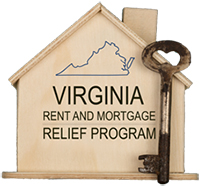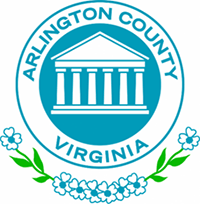Virginia At Issue - February 2021
AOBA Secures Amendment to Keep Sunset on Mandatory Payment Plans
 Much of AOBA’s advocacy efforts for the 2021 Virginia General Assembly session have been focused on H.B. 1889, a bill to make permanent the temporary eviction procedures adopted during the 2020 special session to help keep tenants safely housed during the COVID-19 pandemic. This includes the requirement for housing providers to offer tenants the option of a payment plan if they are not able to make their rent payment on time. The bill also sought to permanently extend the five-day “pay or quit” timeline to 14 days.
Much of AOBA’s advocacy efforts for the 2021 Virginia General Assembly session have been focused on H.B. 1889, a bill to make permanent the temporary eviction procedures adopted during the 2020 special session to help keep tenants safely housed during the COVID-19 pandemic. This includes the requirement for housing providers to offer tenants the option of a payment plan if they are not able to make their rent payment on time. The bill also sought to permanently extend the five-day “pay or quit” timeline to 14 days.
The bill passed the House of Delegates and seemed on a trajectory towards being adopted into law. AOBA succeeded, however, in securing amendments to the bill that will maintain a sunset on the bill’s provisions. The bill was heard this week by the Senate Committee on General Laws & Technology. At AOBA’s request, amendments were adopted to simply extend the bill’s sunset by one year to July 1, 2022 rather than repealing it altogether. Language in the Commonwealth’s biennial budget already extended the sunset on mandatory payment plans and the 14-day pay-or-quit timeline through the end of the current state of emergency which is expected to last for at least another year.
This is a significant victory for the industry. However, since advocates are expected to continue pursuing legislation to make such requirements permanent, AOBA will keep members apprised as this issue garners additional consideration before the Virginia Housing Commission and future sessions of the General Assembly.
Update from the Virginia General Assembly
 At the call of Gov. Ralph Northam, the Virginia General Assembly convened a special session last week -- a procedural maneuver. At the 2021 legislative session’s outset, House and Senate Republicans denied the necessary two-thirds vote to extend the legislative session to its normal 45-days. This necessitated the Governor’s special session to extend the timeline for consideration of legislation and updates to the Commonwealth’s biennial budget. Rules adopted by both the Senate and House of Delegates prevent the introduction of new legislation for the special session, unless passed down by the Governor. Therefore, this week was mostly occupied by procedurally carrying over remaining viable legislation from the 2021 regular session to the special session.
At the call of Gov. Ralph Northam, the Virginia General Assembly convened a special session last week -- a procedural maneuver. At the 2021 legislative session’s outset, House and Senate Republicans denied the necessary two-thirds vote to extend the legislative session to its normal 45-days. This necessitated the Governor’s special session to extend the timeline for consideration of legislation and updates to the Commonwealth’s biennial budget. Rules adopted by both the Senate and House of Delegates prevent the introduction of new legislation for the special session, unless passed down by the Governor. Therefore, this week was mostly occupied by procedurally carrying over remaining viable legislation from the 2021 regular session to the special session.
In spite of this short break, House and Senate Committees have taken expeditious action on several measures impacting AOBA members. A comprehensive list of bills being monitored by our advocacy team can be accessed by clicking here. A summary and status updated for highlighted legislation is provided below.
GENERAL BUSINESS MEASURES
![]() FAILED: Repealing Virginia’s Vaunted “Right to Work” Law
FAILED: Repealing Virginia’s Vaunted “Right to Work” Law
H.B. 1755 – Delegate Lee Carter (D-Manassas)
In a win for AOBA and the broader business community, the House of Delegates took action this week to stifle legislation aimed at repealing Virginia’s “Right to Work” law. Democratic Socialist and gubernatorial candidate Lee Carter (D-Manassas) reintroduced legislation this year to repeal Virginia’s highly touted “Right to Work” law. This law, oft credited with being the backbone of Virginia’s favorable business climate, stipulates that an individual’s employment may not be contingent upon compulsory membership in a union. After the bill failed to receive a hearing, Delegate Carter attempted a procedural maneuver to force a vote on the House floor. His motion was rejected on a vote of 83-13 and will fail to cross over for additional consideration in 2021.
![]() WITHDRAWN: Employer Standards for Heat Illness Prevention
WITHDRAWN: Employer Standards for Heat Illness Prevention
H.B. 1785 – Delegate Jeion Ward (D-Hampton)
This proposed legislation sought to require the Safety and Health Codes Board to adopt regulations on businesses that would establish standards for protecting employees from heat illness. The bill would have created another legal cause of action for an employee to bring suit against a business seeking monetary damages for failure to adhere to such standards. This is a revised version of legislation introduced for consideration last year. Facing significant opposition from the business community, last year’s bill - carried over to 2021 - would have required employers to provide water, shade and a climate-controlled environment to employees, and rest periods of up to 45 minutes per hour. It would have also required employers to provide an additional hour of pay for days when the temperature exceeded 90 degrees. The Committee on Labor and Commerce voted unanimously to strike the bill from its docket. It will receive no further consideration this year. However, due to a letter from Delegate Ward who Chairs the Committee, the Safety and Health Codes Board is expected to study the issue of heat illness prevention.
![]() FAILED: Hazard Pay for Essential Workers
FAILED: Hazard Pay for Essential Workers
H.B. 2015 – Delegate Hala Ayala (D-Woodbridge)
Delegate Hala Ayala, who is running for Lieutenant Governor in 2021, introduced H.B. 2015. The bill would have required that during a declared state of emergency or executive order directing citizens to stay at home or shelter in place, businesses compensate essential workers at a rate of one and a half times their normal rate of pay. The bill would have additionally required employers to furnish essential employees with personal protective equipment. After reporting from the Labor & Commerce Committee on a vote of 13-9, the bill was re-referred to the Committee on Appropriations, where it was passed by on a vote of 21-0. It will not cross over for further consideration this year.
![]() PENDING SENATE HEARING: Setting Minimum Overtime Wages
PENDING SENATE HEARING: Setting Minimum Overtime Wages
H.B. 2063 – Delegate Mike Mullin (D-Newport News)
Delegate Mullin’s H.B. 2063 would set a minimum rate for overtime wages of one and a half times an eligible employee’s regular salary. The bill passed the House on a vote of 55-43 and awaits a hearing before the Senate Committee on Commerce and Labor.
![]() PENDING SENATE HEARING: Required Provisions for Paid Sick Leave
PENDING SENATE HEARING: Required Provisions for Paid Sick Leave
H.B. 2137 – Delegate Elizabeth Guzman (D-Woodbridge)
In a redux of legislation introduced and considered in 2020, Delegate Elizabeth Guzman (a candidate for Lieutenant Governor) seeks to stipulate required provisions for employee paid sick leave programs. The bill would require any company with more than five employees to provide earned paid sick leave at a rate of one hour per 30 hours worked. The bill further outlines the purposes for which such time may be used and provides recourse for employees for alleged violations. Last year’s bill reported from the Commerce and Labor Committee only to be left in the Committee on Appropriations without receiving a hearing. This year’s bill was amended to exclude retail businesses with fewer than 25 employees. With those amendments, the bill passed the House on a vote of 54-46 and now crosses over to the Senate for further consideration.
![]() FAILED: Civil Immunity Against Claims of Transmission of COVID-19
FAILED: Civil Immunity Against Claims of Transmission of COVID-19
H.B. 2143 – Delegate Jason Miyares (R-Virginia Beach)
Delegate Jason Miyares, a 2021 candidate for Attorney General, introduced H.B. 2143 to protect business against claims for transmission of the COVID-19 virus when they have complied with pertinent regulations and guidance. Similar legislation was introduced during the 2020 special session. After moving rapidly through the Committee process, the bill ran into trouble on the House and Senate floor. Though the concept had the support of House and Senate leadership, the Democratic caucuses abandoned the effort when labor organizations launched an opposition campaign. H.B. 2143 received similar treatment and will fail to cross over without even receiving a hearing.
HOUSING, LAND USE AND BUILDING CODES
![]() FAILED: Required Language on Unlawful Detainer Forms
FAILED: Required Language on Unlawful Detainer Forms
H.B. 1897 – Delegate Clint Jenkins (D-Suffolk)
Delegate Clint Jenkins introduced H.B. 1897 at AOBA’s request. The bill would simply add language to unlawful detainer forms educating tenants of existing law that an employer may not take retaliatory action against a tenant for appearing in court in response to a summons for unlawful detainer. The bill is responsive to claims by tenant advocacy groups that many tenants were self-evicting for fear of losing their jobs if they were to appear in court. The bill passed the House of Delegates unanimously. However, upon crossing over to Senate, the bill was defeated in the Senate Judiciary Committee. There was a misunderstanding amongst Committee members regarding the bill’s effect, since some Senators objected to the underlying policy (existing law) of which the bill would have provided notice. The Committee failed to take public testimony and thus AOBA had no opportunity to provide clarification.
![]() PASSED HOUSE: Screening Procedures for Furloughed Government Employees
PASSED HOUSE: Screening Procedures for Furloughed Government Employees
H.B. 1908 – Delegate Dan Helmer (D-Fairfax)
H.B. 1908 would add furloughed government employees to the code section adopted during the 2020 special session to protect applicants financially affected by the COVID-19 pandemic from having negative credit information held against them in their search for future housing. Upon a tenant’s failure to qualify for a unit, housing providers are required to inquire of the prospective tenant whether their failure to qualify for a unit was exclusively due to negative credit history incurred during the pandemic. The tenant has 24 hours to make such assertion (or three days where notice is only provided in writing) and trigger an individualized assessment. H.B. 1908 would stipulate similar procedures for furloughed government employees. After passing the House of Delegates, the bill has been reported from the Senate Committee on General Laws & Technology and now awaits a vote on the Senate floor next week.
![]() AMENDED, PASSED HOUSE AND SENATE: Accommodation of Disability-Related Parking Requests
AMENDED, PASSED HOUSE AND SENATE: Accommodation of Disability-Related Parking Requests
H.B. 1971 – Delegate Betsy Carr (D-Richmond)
H.B. 1971 was introduced on behalf of the Attorney General. The bill seeks to clarify that when a housing provider receives a request for accessible parking to accommodate a disability, it shall be treated as a reasonable accommodation and any costs for marking, designating or reconfiguring a parking space shall be borne by the housing provider. The bill has been referred to the House Committee on General Laws. Amendments were made to the bill to clarify that such request may not be reasonable where reserved parking spaces are purchased or paid for by residents. In such a scenario, the property owner shall not be responsible for transferring ownership of designated spaces. With the amendments, the measure passed the House of Delegates 77-22 and subsequently passed the Senate 38-1. It will now be sent to the Governor’s desk to be signed into law.
![]() AMENDED, PASSED HOUSE AND SENATE: Access to Dwelling Units During Emergencies
AMENDED, PASSED HOUSE AND SENATE: Access to Dwelling Units During Emergencies
H.B. 1981 – Delegate Betsy Carr (D-Richmond)
H.B. 1981 allows a tenant to deny access to a housing provider for the purpose of exhibiting the unit for sale or lease or conducting non-emergency repairs during a declared state of emergency in which the tenant has reason to fear for their health and safety. At AOBA’s request, the measure was amended to allow housing providers to work with tenants to schedule repairs at a mutually agreeable time and date under such circumstances with seven days’ notice. The measure passed the House 55-45 and was subsequently amended in Senate Committee to address AOBA’s concerns. It was then passed by the Senate 27-12 and will now be sent to the Governor’s desk for action.
![]() AMENDED: Allowing Unlimited Rights of Redemption
AMENDED: Allowing Unlimited Rights of Redemption
H.B. 2014 – Delegate Marcia Price (D-Newport News)
Delegate Marcia Price introduced H.B. 2014 to allow tenants unlimited opportunity to exercise a right of redemption, a provision that allows a tenant to make good on the full amount owed to “pay to stay” and cancel a pending eviction. Current law allows a tenant to exercise such right only once during a 12-month lease term. AOBA worked to secure amendments clarifying that all debts contractually owed at the time of payment must be rendered to exercise the right of redemption. AOBA also secured amendments that will direct the Department of Housing and Community Development to develop suggested termination notice language to be made available for housing providers to ensure consistency. With the amendments, the bill passed the House of Delegates on a vote of 56-42. After reporting from the Senate Committee on General Laws & Technology, the bill is before the full Senate. Additional amendments may be pending as consideration of the bill has been deferred several times this week.
![]() PASSED HOUSE AND SENATE: Local Discrimination Against Affordable Housing
PASSED HOUSE AND SENATE: Local Discrimination Against Affordable Housing
H.B. 2046 – Delegate Jeff Bourne (D-Richmond)
AOBA has worked to support similar legislation in prior legislative sessions to prohibit discrimination by local governments in land use decisions based on the population a proposed development is intended to serve. The Commonwealth of Virginia faces a serious dearth of affordable housing options. Yet NIMBYism among surrounding communities frequently serves as a barrier to the development of new affordable housing. H.B. 2046 would arm local elected officials with the legal justification necessary to overcome such resistance and help deliver much-needed housing to address Virginia’s ongoing shortage. After running into objections from various legislators in 2020, the bill was carried over to the 2021 session for additional consideration. The bill was amended this year to address concerns regarding concentration of affordable housing developments. With those changes, the measure successfully passed the House of Delegates this year on a vote of 77-22. It subsequently passed the Senate 27-11 and now heads to the Governor’s desk to be signed into law.
![]() PASSED HOUSE AND SENATE: Adding Active Duty Military to Protected Classes under Fair Housing
PASSED HOUSE AND SENATE: Adding Active Duty Military to Protected Classes under Fair Housing
H.B. 2161 – Delegate Kathy Tran (D-Springfield)
S.B. 1410 – Senator John Bell (D-Broadlands)
After adding numerous new protected classes to Virginia’s fair housing law in 2020, including “status as a veteran,” H.B. 2161 and. S.B. 1410 would add active duty military personnel and military spouses. The bill would further stipulate that a tenant may not waive their rights under the federal Servicemembers Civil Relief Act (SCRA) except after a dispute has arisen. After amendments were made to the Senate bill to remove the waiver provisions, those amendments were stripped when the bill crossed over to the House of Delegates. Both measures have been passed by the Senate and House of Delegates and will now head to the Governor’s desk to be signed into law.
![]() AMENDED, PASSED HOUSE: Mandatory Adoption of Energy Efficiency Codes
AMENDED, PASSED HOUSE: Mandatory Adoption of Energy Efficiency Codes
H.B. 2227 – Delegate Kaye Kory (D-Falls Church)
S.B. 1224 – Senator Jennifer Boysko (D-Herndon)
These two bills, introduced at the request of Fairfax County and the Sierra Club, would direct the Department of Housing and Community Development (DHCD) to adopt IECC standards as part of Virginia’s uniform statewide building code. AOBA worked to defeat the inclusion of such standards in this year’s adopted code change cycle. Fairfax County and the Sierra Club also participated in these deliberations. This legislation represents an end run around the regulatory process since they failed to achieve the outcome desired. AOBA has historically opposed efforts to legislate the building code, and Virginia’s regulatory process has been lauded for convening subject matter experts and stakeholders. This legislation would effectively substitute the General Assembly’s judgment for those experts. With the opposition by AOBA and other stakeholder groups, the Senate patron withdrew her bill, citing the inability to garner consensus on the measure. The House bill was amended to stipulate that DHCD “shall consider” rather than “shall adopt” the IECC standards. With this change, the measure was passed by the House of Delegates on a vote of 55-45. It has since reported from the Senate Committee on General Laws & Technology and now awaits a Senate floor vote next week.
![]() AMENDED: Capping Security Deposits
AMENDED: Capping Security Deposits
H.B. 2249 – Delegate Delores McQuinn (D-Richmond)
H.B. 2249 would limit a security deposit to a maximum of the equivalent of two month’s rent. It would allow housing providers to add a monthly charge to rent to cover damage insurance or renter’s insurance premiums. AOBA worked to secure amendments that fixed problems with the legislation. The measure subsequently passed the House of Delegates 56-43 and the Senate 26-13. It will now head to the Governor’s desk to be signed into law.
UTILITIES
![]() FAILED: Clean Energy Choice
FAILED: Clean Energy Choice
H.B. 2048 – Delegate Jeff Bourne (D-Richmond)
H.B. 2048 is similar to legislation introduced last year seeking to preserve and expand the ability of customers to procure 100% clean and renewable energy from competitive suppliers. Providers have entered the Virginia market, supplying such energy at rates lower that Dominion Energy’s base power rate. Dominion remains embroiled in legal challenges to end such practice. AOBA and a coalition of other supporting groups garnered significant support in the House of Delegates last year. However, the Senate remained a roadblock. Ultimately, the Senate bill was passed by indefinitely and the House legislation was gutted and passed as a small pilot project. This year’s bill passed the House of Delegates on a vote of 67-32, with strong bipartisan support. However, it ran into the same buzzsaw in the Senate Committee on Commerce and Labor and was again passed by indefinitely on a vote of 11-4.
TAXES
![]() PASSED SENATE: Tax Credit for Affordable Housing Developments
PASSED SENATE: Tax Credit for Affordable Housing Developments
H.B. 2050 – Delegate Jeff Bourne (D-Richmond)
S.B. 1197 – Senator Mamie Locke (D-Hampton)
H.B. 2050 and S.B. 1197 sought to create a tax credit to be administered by Virginia Housing equivalent to the federal low-income housing tax credit. The credit would be non-refundable and carried forward for up to five years. S.B. 1197 was passed unanimously by the Senate. H.B. 2050, however, failed to advance from an Appropriations Subcommittee. Subcommittee members cited support for the proposal’s substance, but a lack of sufficient funding to support the concept. The Senate bill remains viable. After passing the Senate, it crossed over to the House of Delegates for further consideration. It is currently in the House Appropriations Committee’s jurisdiction, where it will need to be determined if sufficient funding is available in the budget to support the program.
Changes Made to Virginia, Fairfax County Rent Relief Programs
 Virginia’s Rent Relief Program (RRP) has transitioned to a new federal funding source, and changes have been made to the program.
Virginia’s Rent Relief Program (RRP) has transitioned to a new federal funding source, and changes have been made to the program.
Eligibility Requirements
Eligibility criteria will be unchanged:
- Household’s current gross income must be at or below 80% of area median income (AMI)
- Household’s rent cannot exceed 150% of fair market rent (FMR)
- Tenant must demonstrate through self-certification that they cannot make rent payments due to COVID-19
- When a tenant meets this eligibility criteria and is unable to pay their rent on time, the housing provider is required to apply for assistance on the tenant’s behalf or cooperate with the tenant's application
If a tenant does not qualify for assistance, the housing provider may proceed to seek possession of the unit after providing required notice and offering the tenant a payment plan as provided in § 4-14.00 of Virginia’s biennial budget.
Program Changes
Program changes will apply, even for already approved applications:
- The program will be able to pay 100% of a qualifying tenant’s past due rent back to April 1, 2020
- The program is also able to pay ahead three month’s rent into the future
- The total payments may not exceed 15 months of rental assistance per household
- New rules will require that documentation be provided for the two previous month’s income in addition to the current month’s income
- This will apply prospectively as well as for applications already approved under the previous funding source
- Applications that were previously approved for future funding will be reverted back to pending status until the additional income documentation is provided
Fairfax Properties No Longer Under Rent Relief Program
Fairfax County will be receiving funds directly from the federal government and managing its own rental assistance program. As such, properties within the County’s borders will no longer be covered by the Virginia Rent Relief Program (RMRP). Housing providers with properties in Fairfax County will need to apply directly with the County.
Fairfax County tenants seeking rent assistance:
- Call Fairfax County’s Coordinated Services Planning by calling 703-222-0880, TTY 711
- Click here to access the County Coordinated Services Planning website, which provides general information but does not act as an application portal
Fairfax County housing providers seeking rental assistance on behalf of a tenant:
- Click here to access the Fairfax County Landlord Portal on the Eviction Prevention website
- Telephone: 703-324-5580
- Email: NCSEvictionSupport@fairfaxcounty.gov
Housing providers may establish a profile under Virginia Housing’s landlord portal and submit an application by clicking here. Members are able to check the status of their completed application by clicking here.
Click here for more information on the Virginia Rent Relief Program (RRP).
Feedback Needed: Water/Wastewater Rate Structure Changes Proposed for Arlington
 Arlington County’s Department of Environmental Services (DES) has commenced a Water and Wastewater Utility Cost of Service and Rate Design Study. The study objectives include a plan to develop a forecast of revenues and revenue requirements, assess level of future increases, and build a financial planning model.
Arlington County’s Department of Environmental Services (DES) has commenced a Water and Wastewater Utility Cost of Service and Rate Design Study. The study objectives include a plan to develop a forecast of revenues and revenue requirements, assess level of future increases, and build a financial planning model.
Currently the County has a simple rate structure, where all customers pay the same rate for the volume of water used. In the proposed rate structure, residential, commercial, and multifamily customers would pay different rates. In addition, the proposed rate structure introduces a base rate.
Under this proposal, base rates will be $9.29 per thousand gallons of water consumption and $7.69 per thousand gallons of sewer consumption for all members. For multifamily residential members, proposed monthly rates for water consumption would be $4.57 per thousand gallons metered usage with a sewer rate of $9.78 per thousand gallons metered usage. For commercial members, proposed monthly rates for water consumption would be $4.95 per thousand gallons metered usage with a sewer rate of $9.78 per thousand gallons metered usage.
More information on proposed rate fee structures may be accessed below:
Click here to calculate how the proposed water/wastewater rate structure changes may affect your future water/wastewater bill.
Member Action: Please provide feedback to inform AOBA’s organizational response to the proposal by emailing our Director of Government Affairs, Bismah Ahmed. Members may also provide feedback directly to the County through their online feedback form by Feb. 28.
